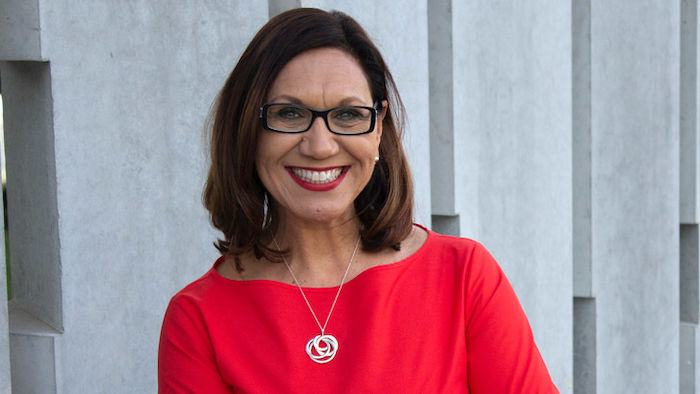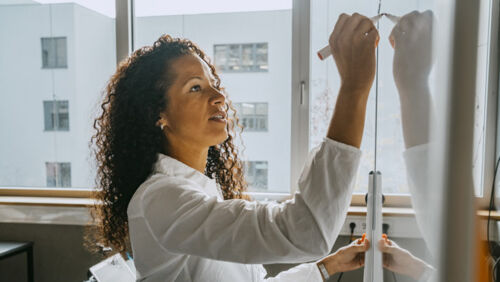Anita Heiss on helping others growing up Aboriginal in Australia
By Julia Newbould
Author and University of Queensland professor of communications in Aboriginal and Torres Strait Islander studies, Anita Heiss's most recent book was editing the anthology Growing Up Aboriginal in Australia. A significant literary project aims to break down stereotypes about who First Nations people are in the 21st century, and about what it means to grow up in a country where they are often viewed and treated as second-class citizens.
Fifty-two contributors shared their family histories of pain, heartache, racism and the importance and influence of identity, the Stolen Generations, family and kinship, education, concepts of country and place, and sport. The collection mirrors the diverse society that Aboriginal people live in and engage with every day so there are motivational and uplifting stories alongside suicide, feminism and sexuality, football, theatre, role models, religion and road trips. With #BlackLivesMatter now a daily conversation, indigenous voices are finally being heard.
What was your first job?
My very first paid job was pouring cordial into cups in the snack bar at the Matraville Skyline drive-in. I think I was 14 years old and my mum was working at the gate selling the tickets.
What's the best money advice you've received?
My dad told me: "If you can't afford to pay for it with cash, you can't afford to buy it." My mother told me: "Don't marry a man who complains about how much money you spend on your lipstick."
What's the best investment decision you've made?
Buying my first unit in Matraville was, of course, significant and substantial, but since then I'd have to say that investing in my financial planner (James Kenny) is the best decision I've made because he continues to help me understand how to prepare for the future.
What's the worst investment decision you've made?
I accidently pushed the wrong button and 'invested' $450 in an online US green card lottery opportunity when I was convinced my future creative life was on Manhattan Island.
What is your favourite thing to splurge on?
I'm collecting something from every Tiffany & Co around the world. I've got pieces from stores in New York, LA, Tampa, Boston, Alberta, San Francisco, Hawaii, Sydney, Melbourne, Perth, Brisbane, Nagoya, Hong Kong, Barcelona, Paris, Vienna. It is fair to say that I am the best Valentine I've ever had!
If you had $10,000 where would you invest it?
I would call my financial planner and we would talk through options; that is, invest, contribute to super or possibly a trip to Hawaii if it were safe to fly. It would also depend on where that $10k had appeared from. If it were through a literary prize, for example, we would look to donate a percentage of that to the Indigenous Literary Foundation.
What would you do if you only had $50 left in the bank?
I'd take my mother to her local Italian restaurant and we'd eat pasta and have a yarn.
Do you intend to leave an inheritance?
I do not have children, but siblings, nieces and nephews, and my intention is to leave them something.
How can money make a difference to the things that are important to you? As a Lifetime Ambassador for the Indigenous Literacy Foundation (ILF), cold hard cash can make the world of difference to children in remote Australian communities, some of whom may start school having never had a relationship with a book. Can you imagine that?
Completely free of government funding - the ILF is a grassroots organisation with across-sector partnerships with booksellers, publishers and authors/illustrators - aiming to improve literacy levels for some of Australia's most disadvantaged citizens. The organisation has already placed over 440,000 books into 400 remote communities via a book supply program with thanks to the generosity of those who donate and fundraising events.
The ILF approach also includes a community publishing initiative to produce books in local languages and the Book Buzz program provides board books for infants. Children are our future and all Australian kids should have equal access to the resources many of us enjoy in urban areas.
Finish this sentence: money makes ...
... people behave differently; some are extraordinarily generous, seeing the communal benefits in sharing; some flaunt it as if completely detached from other people's underprivileged realities; and some see it as a means to an end.
Need to talk?
Beyond Blue: 1300 22 4636
Lifeline: 13 11 14
Get stories like this in our newsletters.



